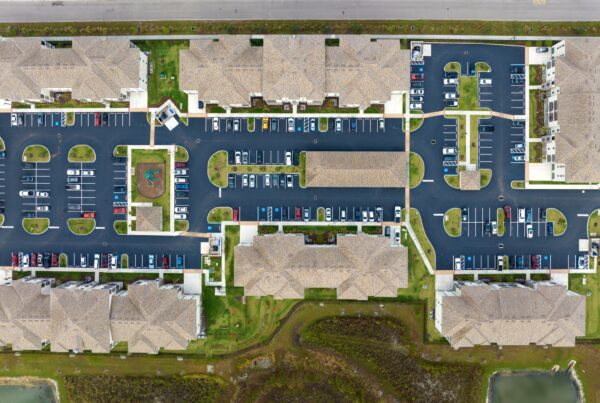Association Management Companies – selecting between big vs. small firms
Choosing the association management company best suited to manage the community is more than merely a business transaction. Community management is a partnership where two parties must function under one operating system. It’s a major decision that can profoundly impact the lives of every resident. So, what should HOAs and condo boards be looking for in an association manager? Does size matter? Which firms offer greater expertise and service? How does the Board’s personality factor into this decision? The landscape of HOA management companies tends to be populated with many small boutique firms as well as very large firms. There are pros and cons of working with each type of community management company.
Considerations for any size HOA management company
First, some things to consider that are applicable to all sizes of community management companies:
- Flexibility – Does the firm mandate usage of their processes and solutions? Or will they adapt to yours? Your Board’s level of adaptability may be the single greatest factor to consider. A Board that is willing to see a variety of solutions (as long as they work) versus a Board that wishes for a specific solution can be a very important factor in a successful management-company relationship.
- Compliance and Consistency – How do smaller companies fare in terms of policy compliance for big-ticket exposures? Accounting double checks, insurance, and risk compliance, as well as other commonly litigated exposures, need double checks that can be a challenge for small operations. Does a “boutique” management company mean a one-person show? If so, that is important to know.
- Subject matter expertise – Smaller owners/operators tend to have a wealth of knowledge compared to big box companies where executives are inaccessible to front-line workers. However, smaller operators don’t always have training resources to teach their support staff industry best practices. More complicated HOA and high-rise condominium operations require a team of resources.
- Resource Availability – If a manager is on leave, who steps up? Believe it or not, it is still common for some companies to close their doors for lunch or not to provide coverage for vacations. This can result in both backlogs and burnout. Having the ability to provide vacations, lunch coverage, and sick leave goes a long way to managing turnover and keeping your board successful.
- Software and Solutions – In an age of immediate responses, does your provider have the tools needed to keep pace with everything from powering websites, payment systems, accounting, tenant and owner outreach, meeting calendars, work orders and preventative maintenance, online voting, violation management, short term rental monitoring, and more?
- Economies of Scale – Large firms claim to offer better rates on CDs due to their size, plus better rates on insurance, etc. Be sure to research first; some of this is true, and some is false. Insurance rates, for example, are set by insurance carriers but some management firms do offer master policies which can help you gain an advantage in terms of scale.
Size does matter on some things.
Big association management – the pros:
- Resources – Larger staff means more resources to handle a wide range of tasks and astrong likelihood that critical operations have continuity plans in place for turnover and leave.
- Technology – Often, big managers have advanced property management software that can offer a wider variety of solutions.
- Compliance – A larger firm is more likely to have the needed resources to provide necessary double checks to manage compliance in areas like accounting and insurance.
- Lower cost – Scale certainly can yield the ability to offer discounts. However, read the fine print. Not all companies charge the same ancillary costs.
Big association management – the cons:
- Less personalized – The large size may make it more challenging to develop more personal relationships. Larger companies tend to also have a depersonalized internal operation which can contribute to high employee turnover.
- Less flexibility– You’ll likely have to sacrifice any customized workflows or processes in order to fit into their model. Counterintuitively, larger doesn’t necessarily mean they are more able to handle complicated operations, as those often require specialized expertise.
- Slower response – Frontline workers often have a big knowledge gap from their more senior leaders, leading to greater opportunities for misalignment. Request responses may also be slower in organizations where large divisions, sometimes in different locations, handle different functions for the organization.
- Acquistions– Many larger firms became large due to acquisitions of owner/operators. However, those original owners seldom stay on for long, leading to brain drain.
Boutique association management – the pros:
- Personalized service – Get a dedicated point of contact with more attention for each property, and likely deal with one or two people for everyone.
- Complexity – Because scale isn’t a concern, boutique firms thrive with unique operations, which tends to make them better suited for a highly customized or complex residential community.
- Attention to detail – The small size allows greater focus on the finer details of property management.
- Niche expertise – Some boutique firms specialize in specific types of properties, like high-rise condos or active living communities.
Boutique association management – the cons:
- Limited resources – Fewer people means less hands on deck. Most likely those same points of contact are doing many things, and your request may have to take a back seat during times of overload. This can lead to less timely communication with the board.
- Potentially higher cost – The personalized service may come at a premium.
- Lack of Tools or Technology – smaller firms tend not to have as many resources available.
- Compliance – Smaller firms may have one or two people doing everything, leading to a lack of separation of responsibilities or a lack of double-checks for critical processes.
What size association management company is right for your community?
These are generalizations based on RISE founders’ long industry experience. We offer this as a guide to help you find the right balance in each meaningful category for your community association. Ultimately, neither big nor small is better by default. It comes down to finding the right fit for your association that will make the match work. By delegating management tasks to outside experts, HOA and condo association board members can focus on strategic planning, community development, and creating meaningful connections between residents. Outsourcing allows boards to tap into the knowledge and resources of professional property management firms, ensuring the community runs smoothly and efficiently.
Contact RISE for a free consultation. We’re here to help you serve your community. Reach us at [email protected] or 713-936-9200. Together we RISE.







